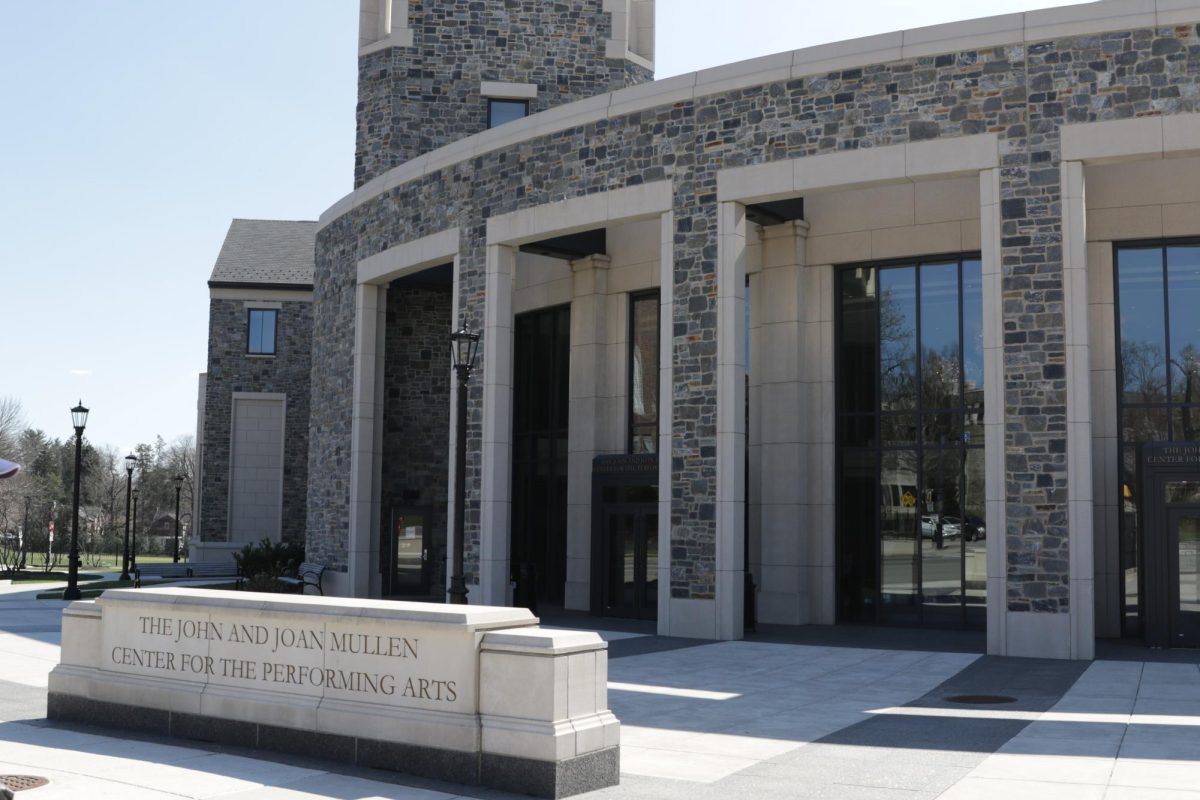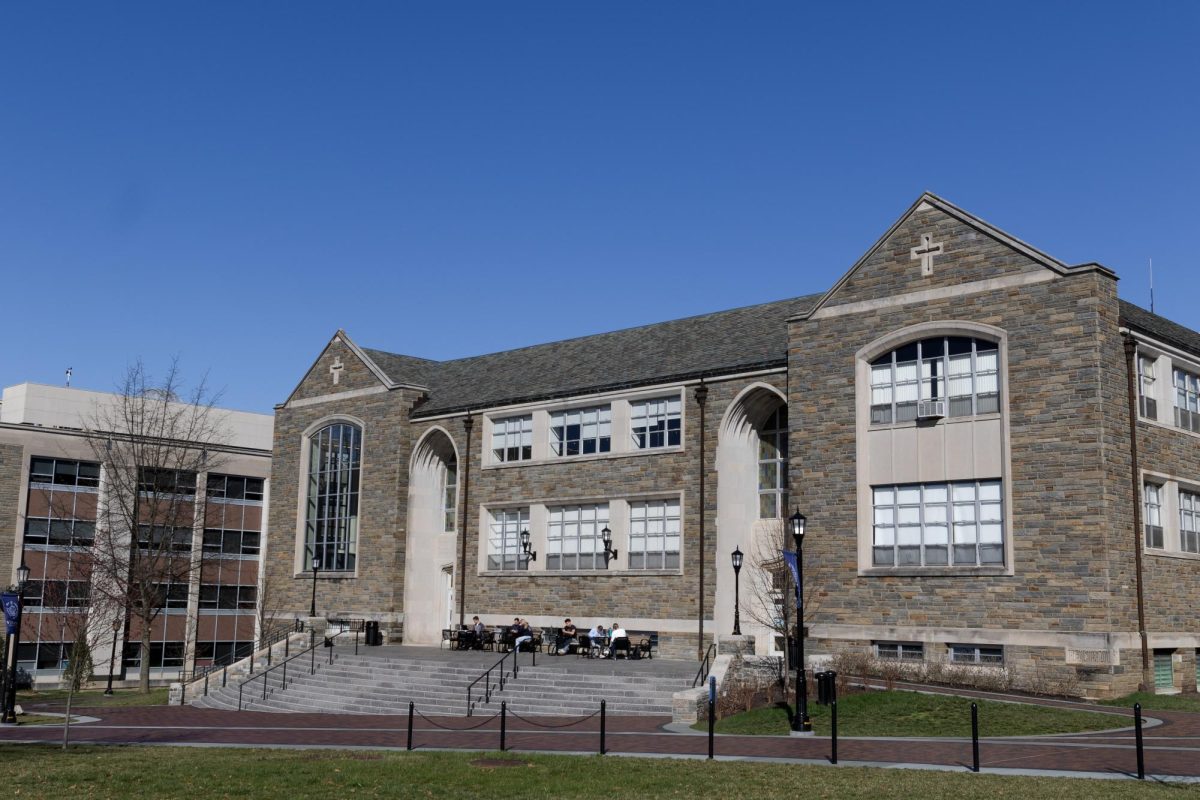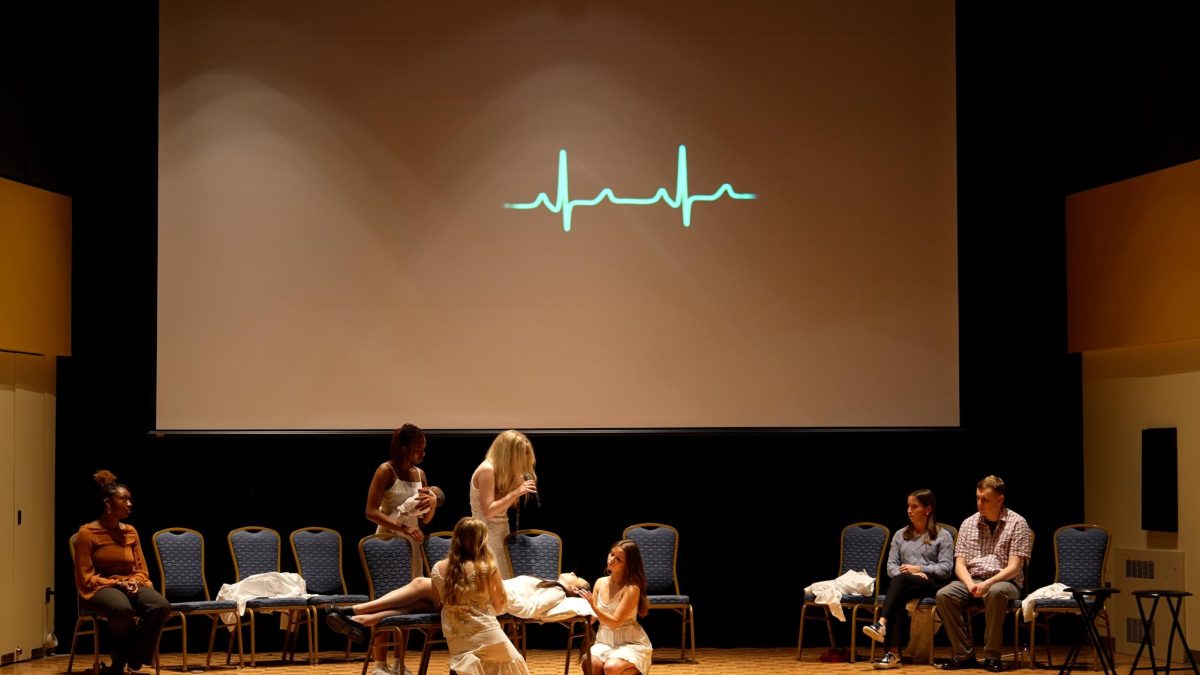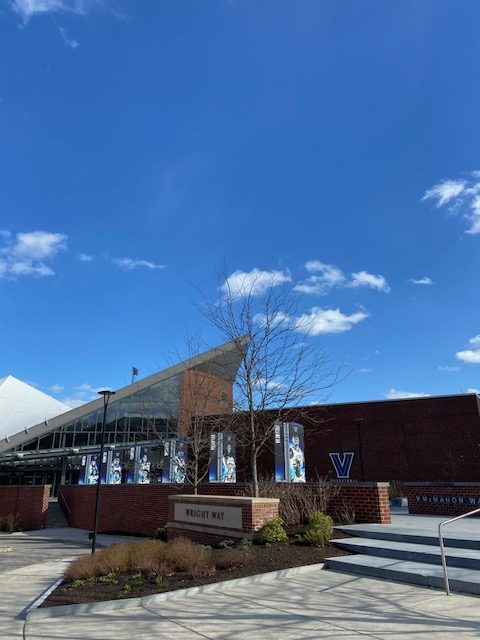On a campus where different cultural events pop up every other day, and freshmen constantly check the ACS-approved Instagram page for something to do, the ACS concert series is certainly a highlight. The concert series takes place periodically in the Mullen Center’s Topper Theater. Thursday, Sept. 12 marked the first installment of the school year, and what a start to the year it was. “Classical Mythology in Classical Music” took its audience through an hour of gorgeous pieces, all related to different mythological stories.
The concert was performed by Villanova ACS professor Elizabeth Springuel, a classically-trained soprano, and Barbara Browne, trained at Oberlin Conservatory, on the piano. The sets alternated between songs with lyrics and songs featuring purely piano. The first set of music told the stories of Ganymede, Zeus’ cupbearer, the goddess Selene and the tortured archer Philoctetes. After a beautiful piano interlude by Browne, Springuel was back to sing two pieces from Dido and Aeneas, one from each character’s perspective.
The next set included a piano solo, a section from Beethoven’s The Creatures of Prometheus. This piece was very powerful and a reminder of how Beethoven used his composing to come to terms with the devastating loss of his hearing.
The next set was perhaps the most interesting of the concert, as it featured two versions of the same story. Interpreting Shakespeare’s “Orpheus and His Lute,” composers R. Vaughan Williams and W. Schuman offer English and American perspectives respectively. The difference in lyrics and overall feel of the music between these two composers is fascinating, especially in the way they were represented in the concert, being played back to back.
The only piece included in the concert by a female composer appeared next, paired with a piece by C. Debussy. Lili Boulanger was only 18 when she composed “Le Retour” about Ulysses’ long and storied journey home.
The next song was notably, and perhaps jarringly, modern. “Sisyphus” by Andrew Bird was released in 2019, and when played by Browne as another solo set, offered the audience some respite from the sometimes foreign classical music. Her cover was fun, fresh and interesting, and was a great way to lead into the concert’s finale. The final piece in the show took the audience back to the story of Orpheus, but this time from his wife’s perspective. In “Che fiero momento,” Eurydice laments her husband’s decision to pull her out of the underworld, complaining of the pain of leaving the land of the dead. Unlike the audience, Eurydice is unaware that Orpheus’ refusal to face her is an act of love and instead suffers as if it was a betrayal.
Classical music can tell wonderful stories, and since many students need to attend cultural events for ACS, why not choose to experience something totally unique? The ACS concert series is constantly working to broaden the horizons of students, and “Classical Mythology in Classical Music” is a perfect example of that. There are typically two ACS concerts each semester, so look for the next musical act the ACS Department brings to Topper Theater.






